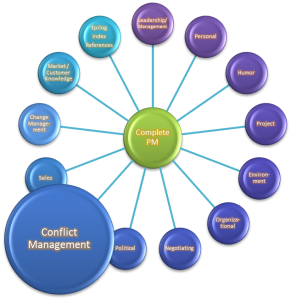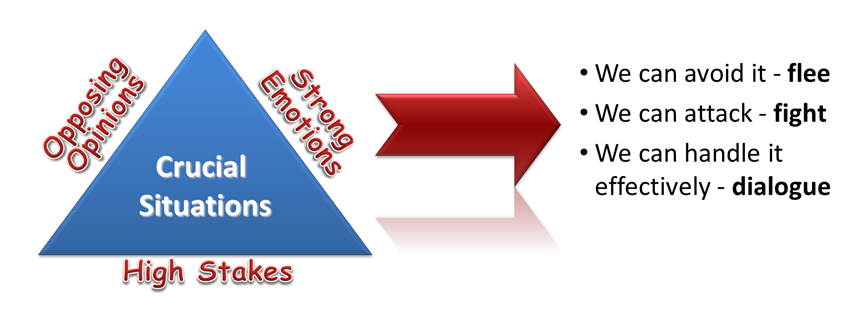Complete project managers are a very special breed of people, requiring a complete set of skills. However, they are not immune from conflict. Sometimes they may even welcome it, for it shows that people are engaged. A lesson I learned about handling issues and especially risky ones came from working as a young man at a county fair where livestock and showmanship were being judged. The “winner” in showing the animals did not always have perfectly behaved animals, but they won because of how masterly they reestablished the “show” positions and demonstrated their leadership. In this case, conflict is an opportunity.
A goal is to establish constructive contention wherein people engage each other and seek better outcomes, fostering an attitude of “Let’s work together to figure this out.” Skills and practices for conflict management include: investigate sources of conflict, learn how to deal with difficult people, conduct learning conversations, focus on the people side of conflict, and use a reframing technique to achieve better outcomes from conflict.
In situations that matter the most, we often perform at our worst. A basic question to ask is, “What is at stake here?” To avoid failure, the solution is to conduct a learning conversation which means to engage in dialogue with a free flow of meaning, as depicted in the picture by the flow from challenges to options.
Here are suggested steps for achieving dialogue in a learning conversation:
- Begin from the third story—not your story or the other person’s story, but how an impartial observer would describe the conflict or situation; also could be an alternate story creating an ideal situation.
- Explain your purpose and extend an invitation. It is always wise to ask people if it is okay to give them feedback or
share constructive criticism. - Explore their story to demonstrate empathic understanding.
- Share your own story that brings personal learnings into the dialogue.
- Take the lead in problem solving.
Conflict is ever present and may be a good thing. Evaluate conflict through multiple frames and reframe project-based work decisions in areas beyond just the financials, such as impact on people development and quality of work.
Randy Englund, Englund Project Management Consultancy, www.englundpmc.com


